- The Segway first went on sale in 2002, and it was supposed to permanently change urban mobility.
- Few units sold, but it became a hit with mall cops, security guards, and fanny pack-wearing tourists.
- On June 23, Segway announced that it was ending production.
- Visit Business Insider’s homepage for more stories.
The now-iconic two-wheel, self-balancing Segway Personal, or Human, Transporter was unveiled to the public in 2001.
Its creator dreamt of the machine turning personal transportation on its head, simplifying how people navigated urban environments and how they commuted to and from the office. Perhaps even US soldiers would one day ride the Segway into battle against the nation’s enemies.
But the machine fell far short of expectations. The Segway instead become a ubiquitous part of the tourism and mall security worlds.
On Monday, the company announced that it was discontinuing the novelty due to a lack of demand.
Here's the story of the Segway, from once-hyped technological wonder to mall cop staple.
The store of the Segway begins n the 1990s when inventor Dean Kamen developed the iBot, a wheelchair that could raise the user and go upstairs. The engineers realized that the same technology could be used for another device, and the Segway was conceptualized.
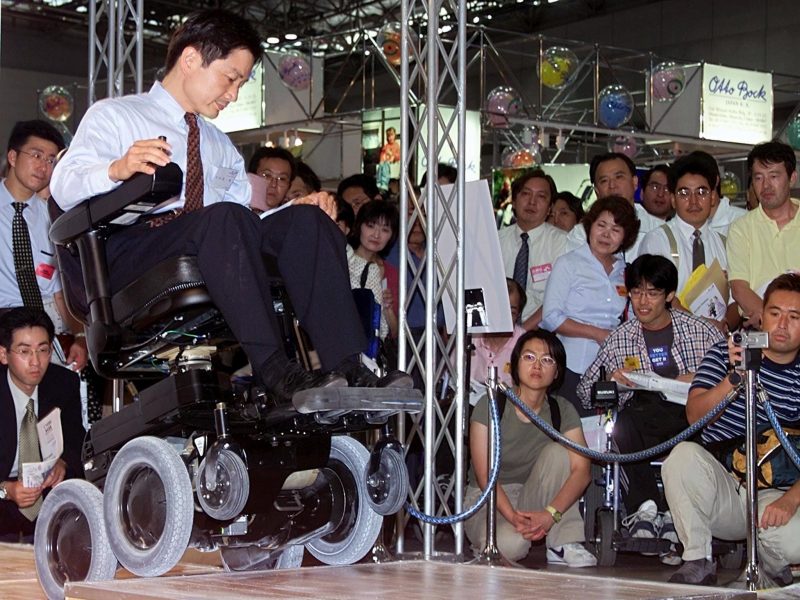
Source: Fast Company
The Segway PT (personal transporter) landed went on sale in 2002. Early units were priced at $5,000 and the machine debuted on Amazon.com on November 18, 2002.
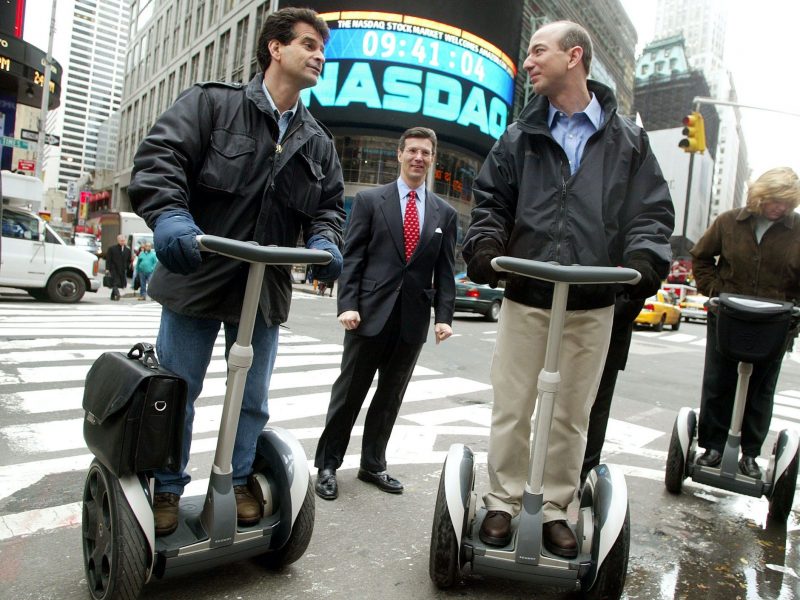
More than $100 million in research and development was said to have gone into the contraption, Wired reported.
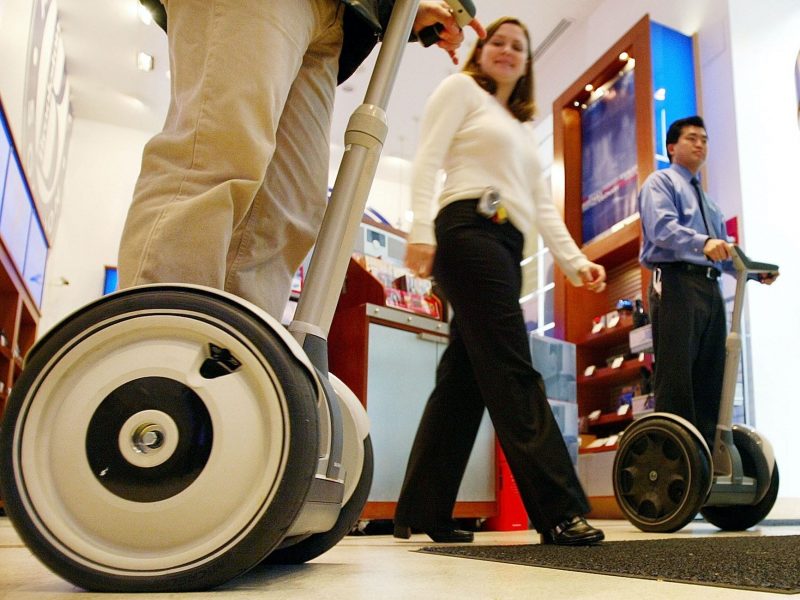
Source: Wired
Created by Dean Kamen, it was originally known as the Segway HT, or human transporter, and nicknamed "Ginger" after actress and dancer Ginger Rogers.
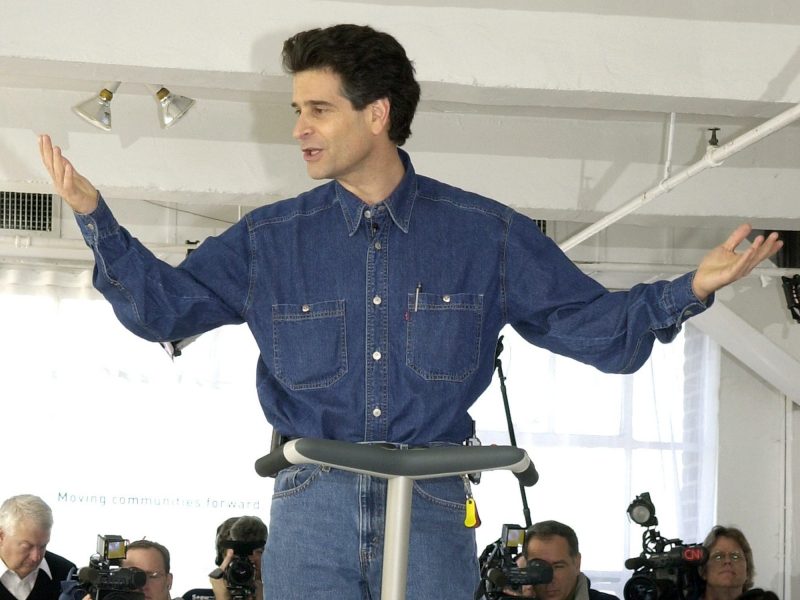
Source: Business Insider and Wired
He hoped the innovation would revolutionize transportation. "It will be to the car what the car was to the horse and buggy," he said when it was released, even saying once he wished for US Special Forces troops to one day ride the machines into battle.
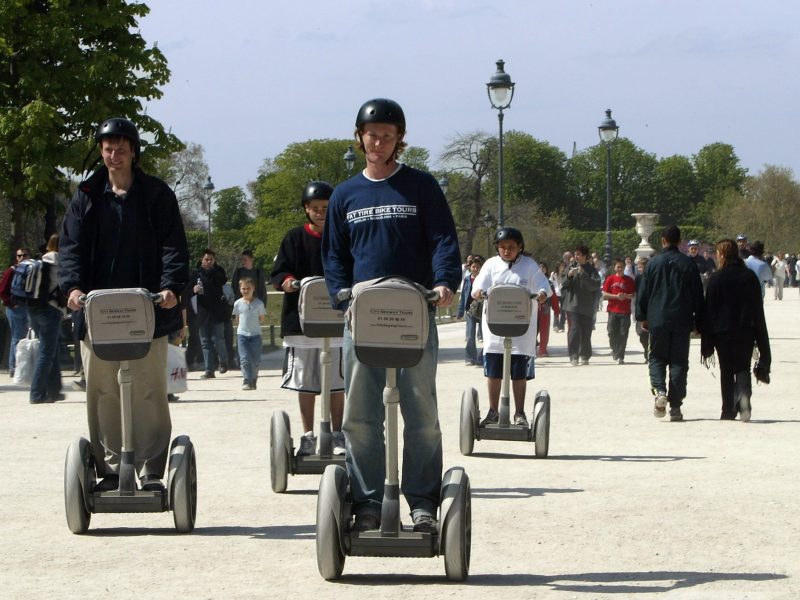
The US Postal Service even tested the Segway on routes in San Francisco.
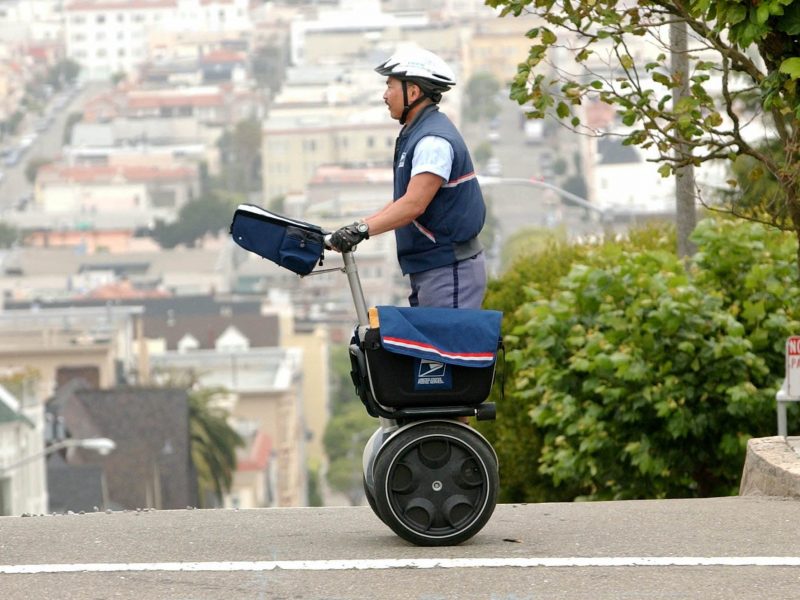
Steve Jobs was reportedly critical of the design and warned Kamen that even one rider falling and hurting themselves could damage Segway's image. Several high-profile Segway riders did have incidents in the following years.
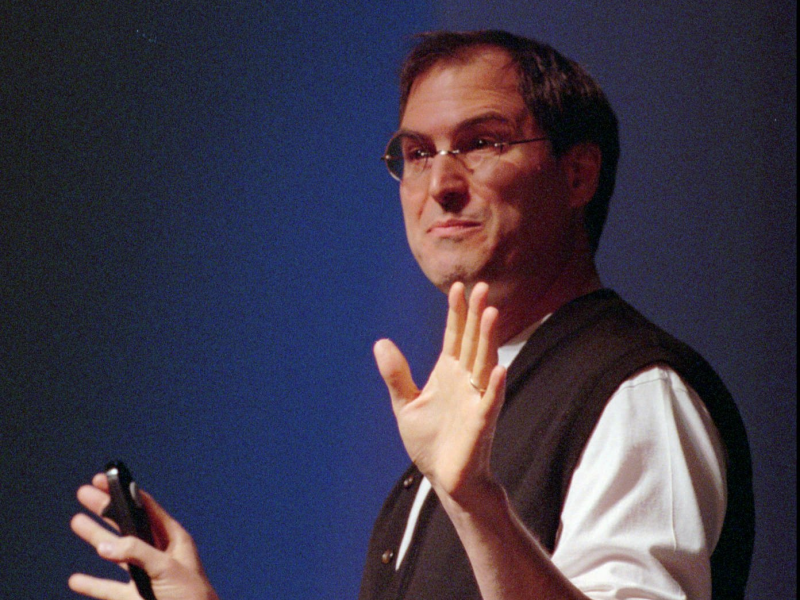
Source: Wired
The Segway gained some national attention when then-US President George W. Bush took one of the vehicles for a spin and fell at his family property in Kennebunkport, Maine.

Source: BBC
By 2003, the Segway was being used in the settings that it's come to be associated with: parking lots and airports. In a January 2010 report, a TechCrunch writer noted that he'd "noticed some mall patrols using them."
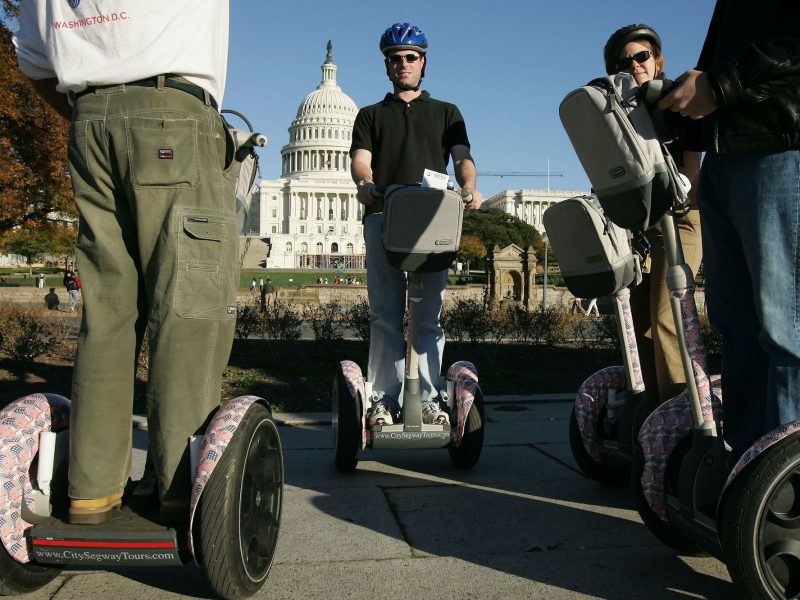
He also wrote that "it's pretty clear that it isn't the future of personal transportation."
Source: TechCrunch
Even Amazon CEO Jeff Bezos said the plan behind the device was "dead on arrival," according to Steve Kemper's 2005 book "Reinventing the Wheel: A Story of Genius, Innovation, and Grand Ambition."
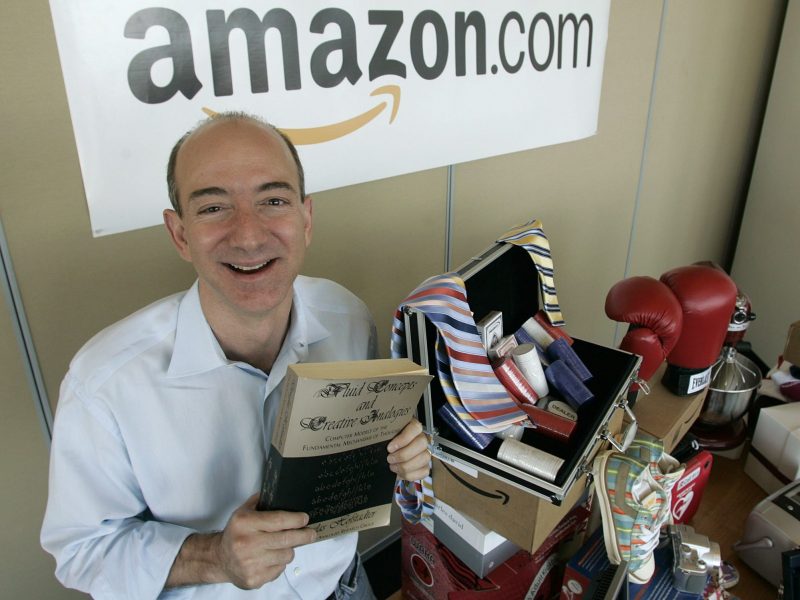
Bezos pondered that there was too much uncertainty surrounding how people would be legally allowed to use it on city streets.
Source: Wired
But it was embraced by some in the San Francisco Bay Area technopolis. Big names in the tech world like Apple co-founder Steve Wozniak used the Segway.
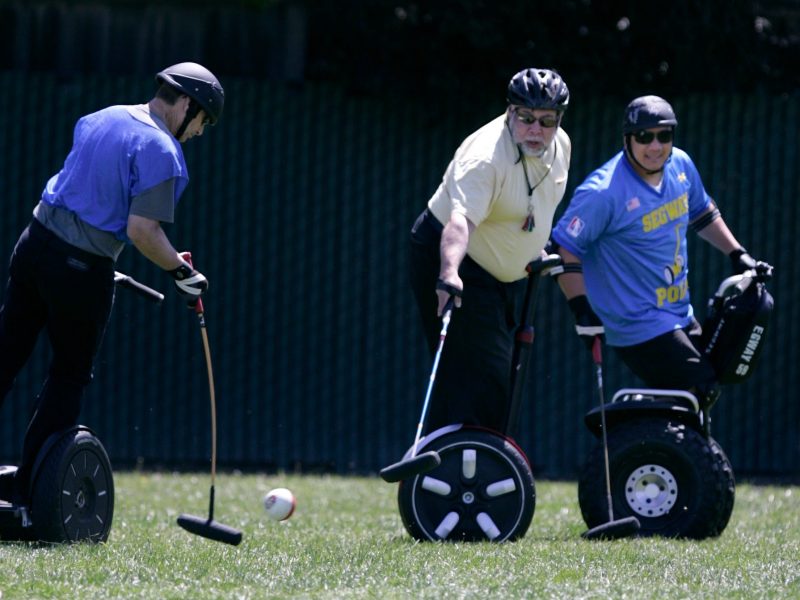
Source: Wired
Others like Google co-founders Sergey Brin and Larry Page have been seen with the vehicle. The tech founders posed with a Segway in a photoshoot in 2003.
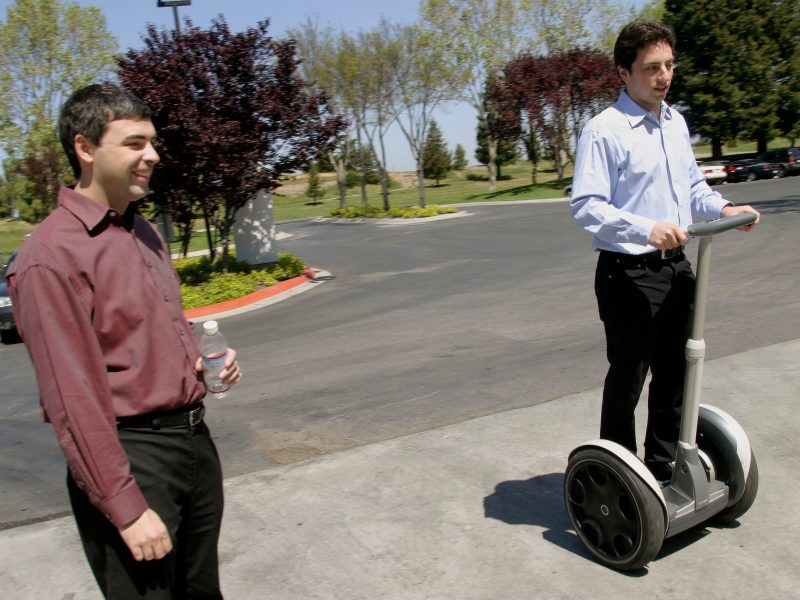
Before the COVID-19 pandemic, Segway tours could still be seen whirling around San Francisco's tourist attractions, just as they are in countless other places.
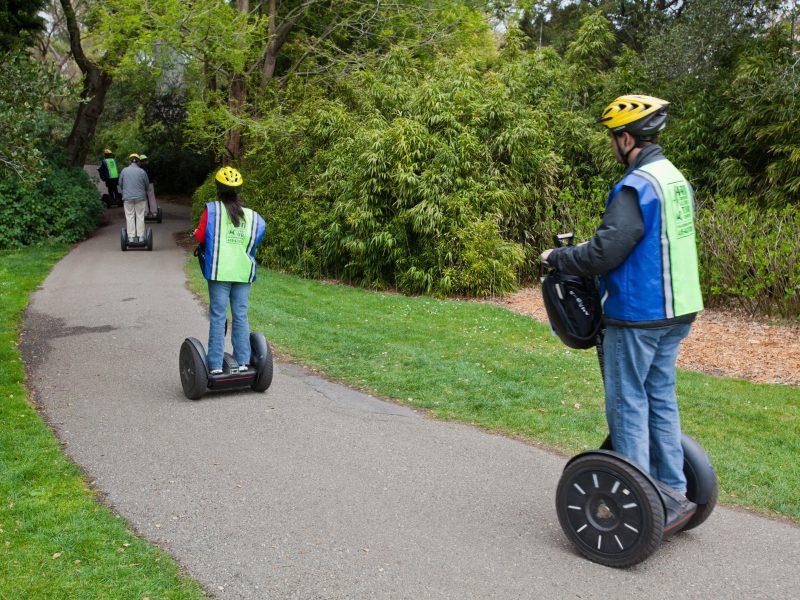
In 2007, British personality Piers Morgan fell off of a Segway in California, breaking three ribs. He'd previously made fun of President Bush for falling off a Segway.

Source: Daily Mail
In 2009, prominent British businessman and millionaire James "Jimi" Heselden and his company Hesco Bastion acquired the Segway company.
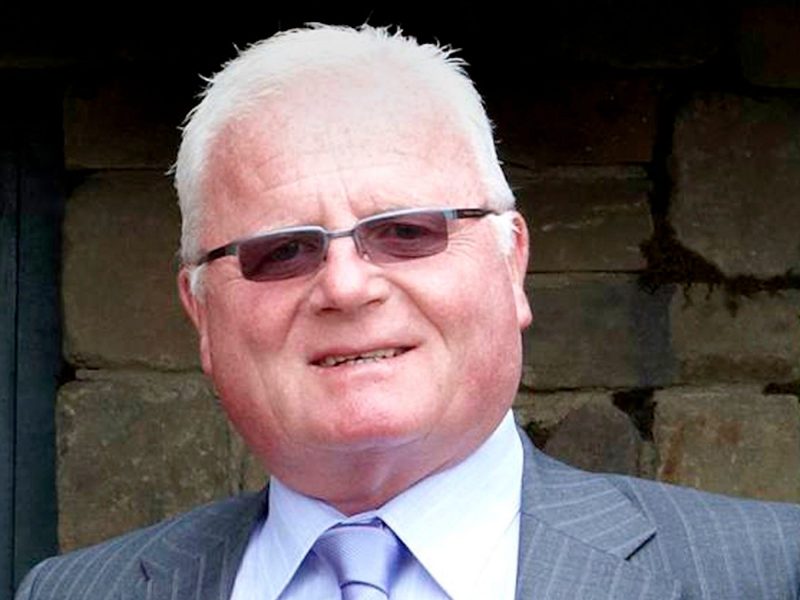
But not even a year later, 62-year-old Heselden tragically rode one of the vehicles off a cliff near his estate in Yorkshire, England, and died.

Source: MSNBC
In 2009, the device was further cemented as a mall cop icon in the movie "Paul Blart: Mall Cop" starring comedian Kevin James.
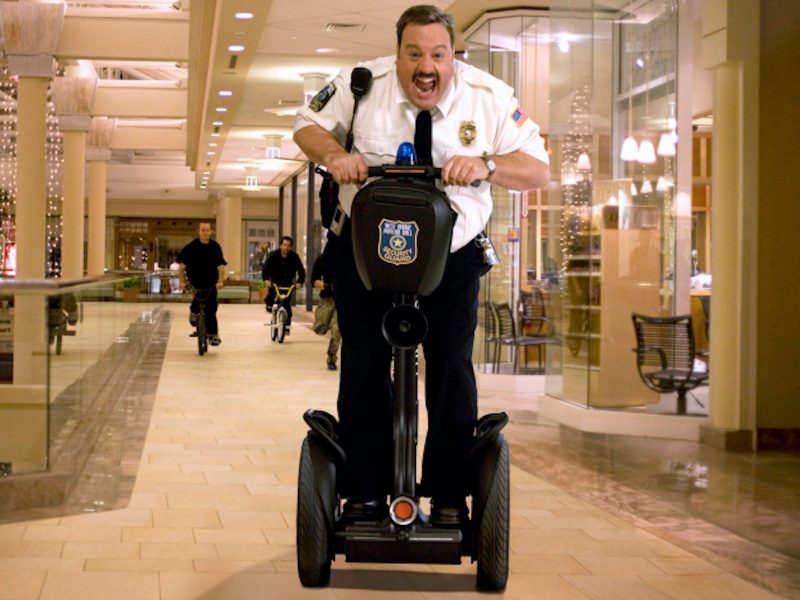
One 2009 review wrote that the Segway - the main character's noble "steed" in the film - and James' skillful jockeying of it was "easily the best thing" about the movie.
The Segway began to slip from technological spectacle to silly gag. It seeped into pop culture through other references as well, like "Weird Al" Yankovic's 2006 song "White & Nerdy."
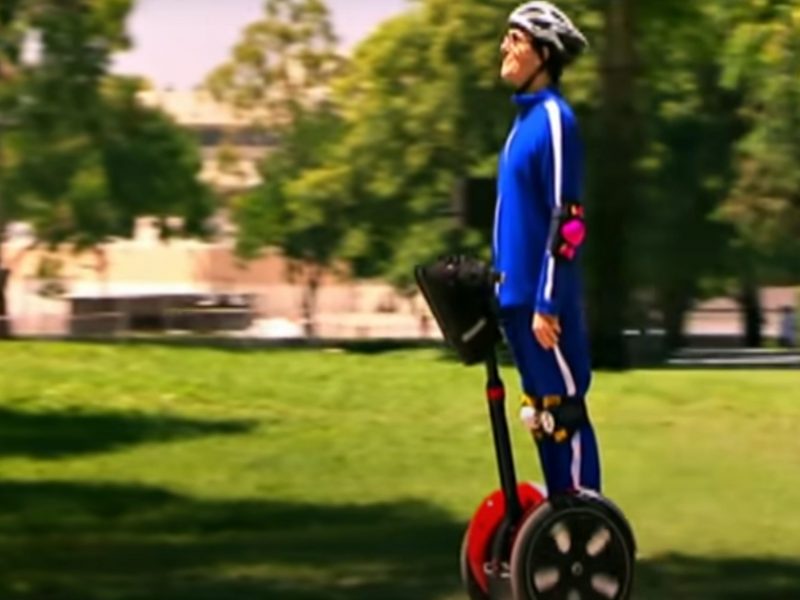
By 2015, the Segway had fallen far short of achieving its maker's dream. From 2002 to 2008, the company only sold 30,000 units, according to Forbes, compared to the 10,000 units a week goal that Kamen once set.

Source: Forbes
According to a 2015 Wired report, the problems that plagued it were social, not technological. The contraption ran smoothly, and the tech was impressive, keeping its riders balanced and upright. But it was heavy, expensive, and looked awkward.
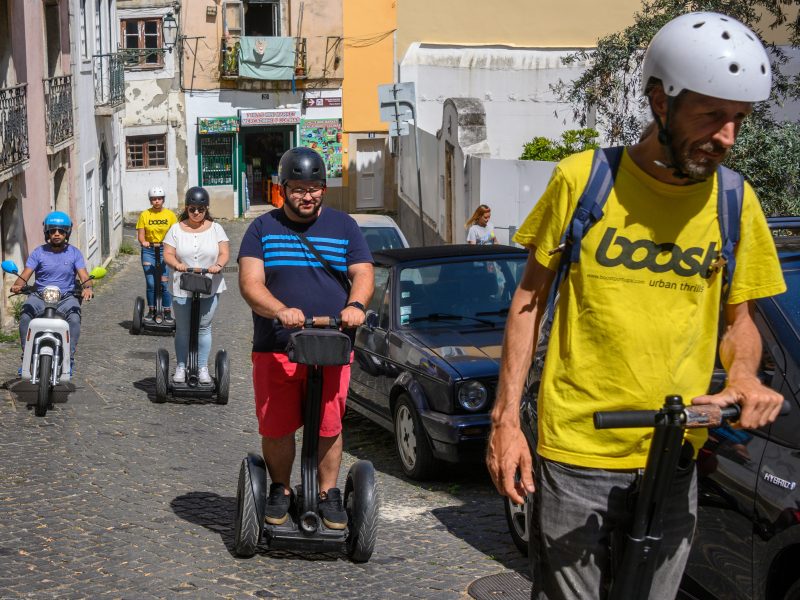
It was wonky to maneuver in buildings, through elevators and lobbies, and on streets and sidewalks. Instead of transforming transportation in cities, it was stunted by the existing urban infrastructure.
Source: Wired
In 2015, the Chinese robotics firm Ninebot bought the company.
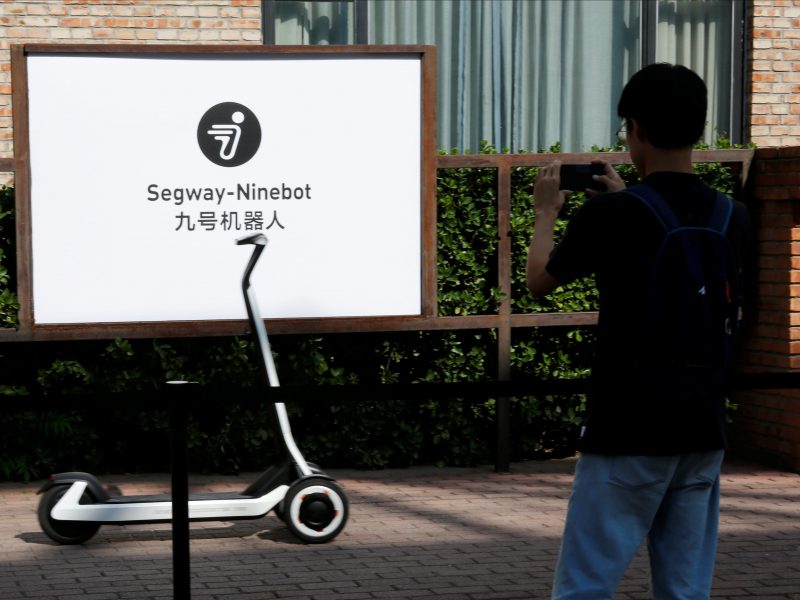
Source: Business Insider
That same year, a cameraman on a Segway crashed into athlete Usain Bolt after a race at the World Athletics Championship.

Electric scooters began to take off in popularity the way Segways never did. Judy Cai, president of Segway, suggested that the low barrier to entry of renting an e-scooter compared to spending thousands on a Segway could be part of the reason.
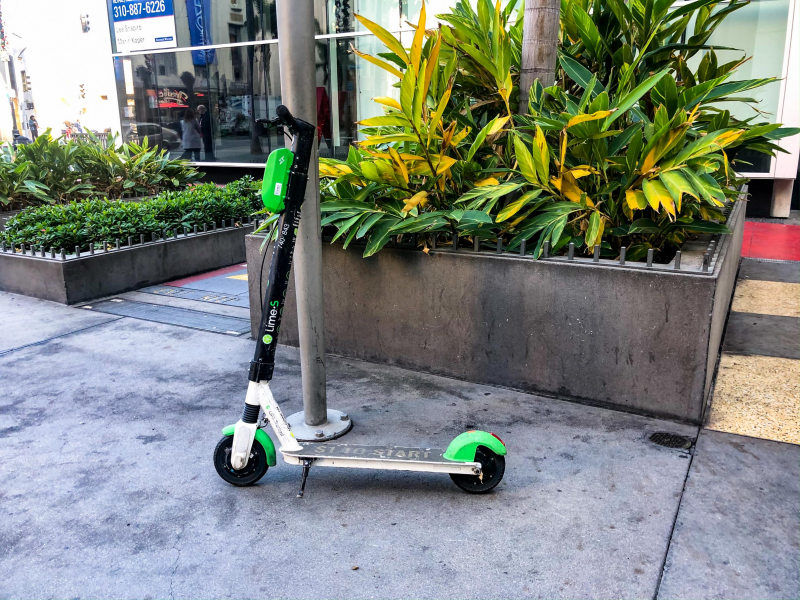
Source: Fast Company
Segway design also didn't change much over its lifespan, with more of a learning curve than scooters, Tony Ho, VP of global business development said.

Source: Fast Company
Segway did have a hand in scooters rising to popularity. Both Bird and Lime had partnerships with Segway for their scooters.
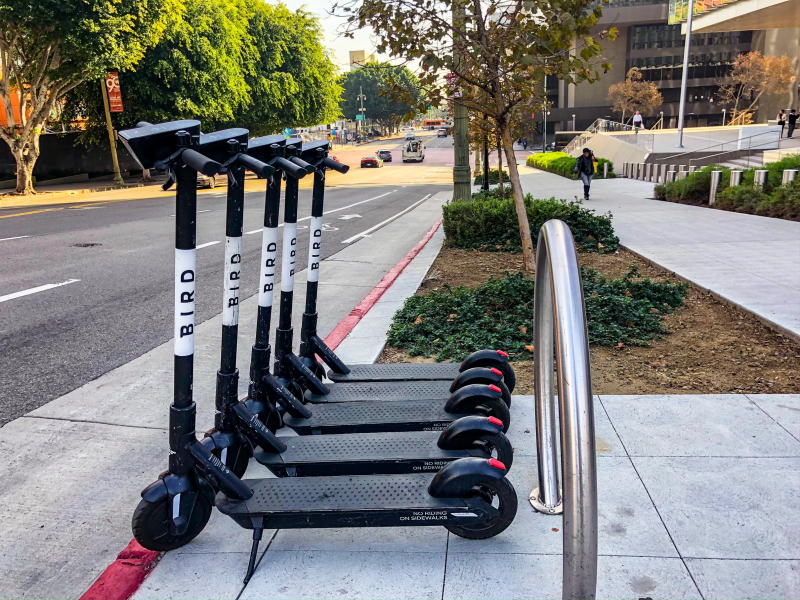
Source: Vox
At a consumer tech show in 2020, Segway debuted its egg-shaped transporting pod.
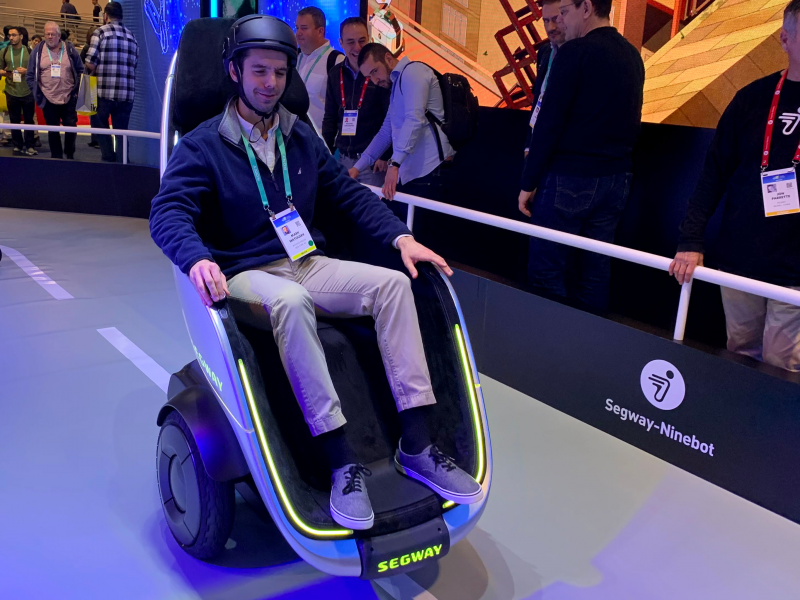
Business Insider's Mark Matousek test drove the S-Pod, and found it difficult to control.
Source: Business Insider
On June 23, Segway announced that it will retire the iconic design, with manufacturing ending on July 15 after having sold just 140,000 units in its lifespan.
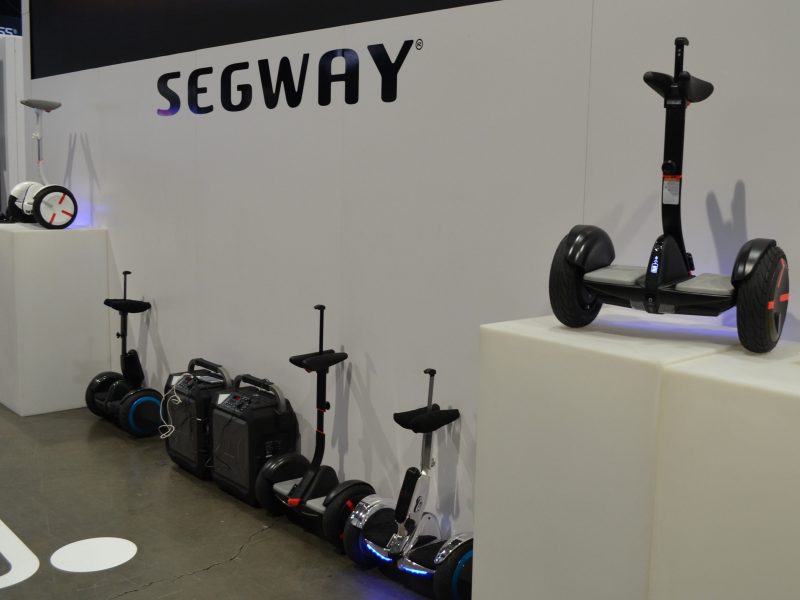
Source: Business Insider, Fast Company
